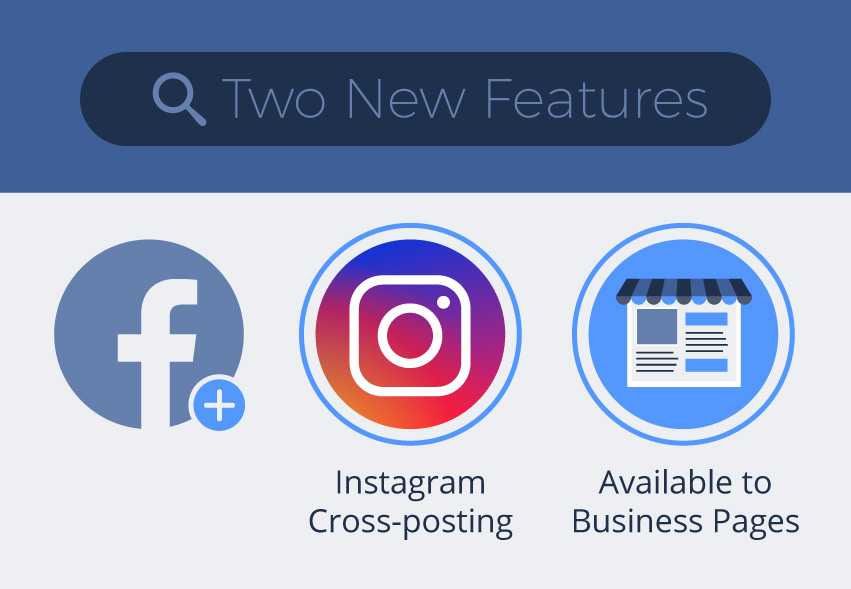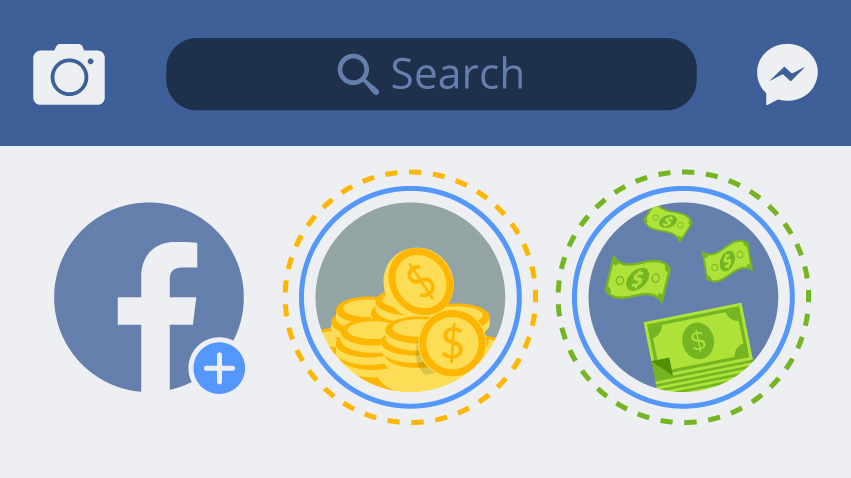This week, Facebook is desperate for somebody — anybody — to use Stories. Also, Twitter continues its never-ending venture to tackle hate speech; Snapchat shows that context is king; and to be honest, Facebook may have found a way to attract and retain a teen audience.
New functionality might get people (and brands) to use Facebook Stories after all
Even though Facebook Stories have been anything but a rousing success thus far, it looks like the social behemoth is doubling down on getting users to watch and to publish Facebook Stories.
In early October, Facebook began granting access to Instagram users to cross-post their Instagram Stories to Facebook. Now, just days later, Facebook has also confirmed that it now will open Facebook Stories to business pages. It is obvious that Facebook is hoping that these two new features will help drum up interest and use of the tool.
Though some may say this is a desperate move by Facebook, it’s hard to blame them for trying. With the success of Snapchat stories and Instagram stories, perhaps execs at Facebook are confused why their stories haven’t taken off yet.
Granted, Facebook hasn’t released any substantive data about how many people are using Facebook Stories, but a simple glance at the relative emptiness at the top of your Facebook app tells you all you need to know. Any good marketer should question the value of Facebook Stories.
However, as is always true with new functionality within social channels, it also is incumbent upon content marketers to determine the value that utilizing new tools can bring to your organization.
Here are a few of the questions you perhaps should be asking:
How many people are using Facebook Stories now?
Well, not many. Facebook hasn’t really provided much data, but it doesn’t look good. “Basically, the stories feature on Facebook has been pretty much a flop,” Alfonso Santaniello said this week on the Digital Scoop YouTube channel. “You don’t see that many users using it.”
Will more people use it in the future?
Facebook can only hope so. If brands do end up coming around on using Facebook Stories, Kevin Olivieri of Morning Coffee Social believes they can build upon the success they have had publishing stories on other social channels.
“Brands should’ve already realized the power, the allure, and the value of this story format and should be experimenting with compelling, interesting stories across other platforms that have this ability now.”
How can I make my organization’s content stand out?
Olivieri believes that you may not need to do very much to make your brand stand out on Facebook Stories — at least not initially. He says rolling Facebook Stories out to brands is “massive” because “the top of Facebook is a real estate gold mine.” It’s hard to argue with his thinking. Having your brand with content at the top of a user’s mobile app is a potential boon for your business — especially as getting content into users’ news feeds seems to get more difficult all the time.
Can my brand buy ads in Facebook Stories?
The answer for now is not yet. Currently, because there is such little use, this shouldn’t be a problem. Your content will stand out from other brands if you publish a story and they don’t. For the long-term, Santaniello believes advertising opportunities will present themselves.
“We all know Facebook,” Santaniello said. “Facebook wants to make money, so they’ll find a way to make it work.”
Twitter is tackling harassment and hate speech. Again. In a series of tweets this week, Twitter CEO Jack Dorsey said the company will be taking a more aggressive stance against hate speech and will implement new rules to curtail “unwanted sexual advances, non-consensual nudity, hate symbols, violent groups, and tweets that glorifies violence.”
Snapchat got much more robust this week when it announced “Context Cards.” By partnering with TripAdvisor, FourSquare, Uber, Lyft, OpenTable and others, Snapchat is able to provide an abundance of information when users view snaps shared by users who have location services enabled.
Facebook has acquired the social sharing app TBH (to be honest) in an attempt to find a way to reach a teenage audience — something it is not doing well with the main Facebook app. The app allows users to connect with their contacts and anonymously answer questions about them. Facebook has not yet announced plans to integrate the app into the Facebook ecosystem, but it may just be a matter of time.
Burger King’s sponsored tweets may be a game-changer for brands looking for inspiration to separate themselves from the competition. After Wendy’s discontinued spicy chicken nuggets, nugget lovers went to Twitter to complain. Now that Burger King is introducing spicy chicken nuggets to its menu, the company is promoting tweets from those who complained after Wendy’s stopped serving — thus enhancing its brand and downgrading Wendy’s, all without creating any original content.










